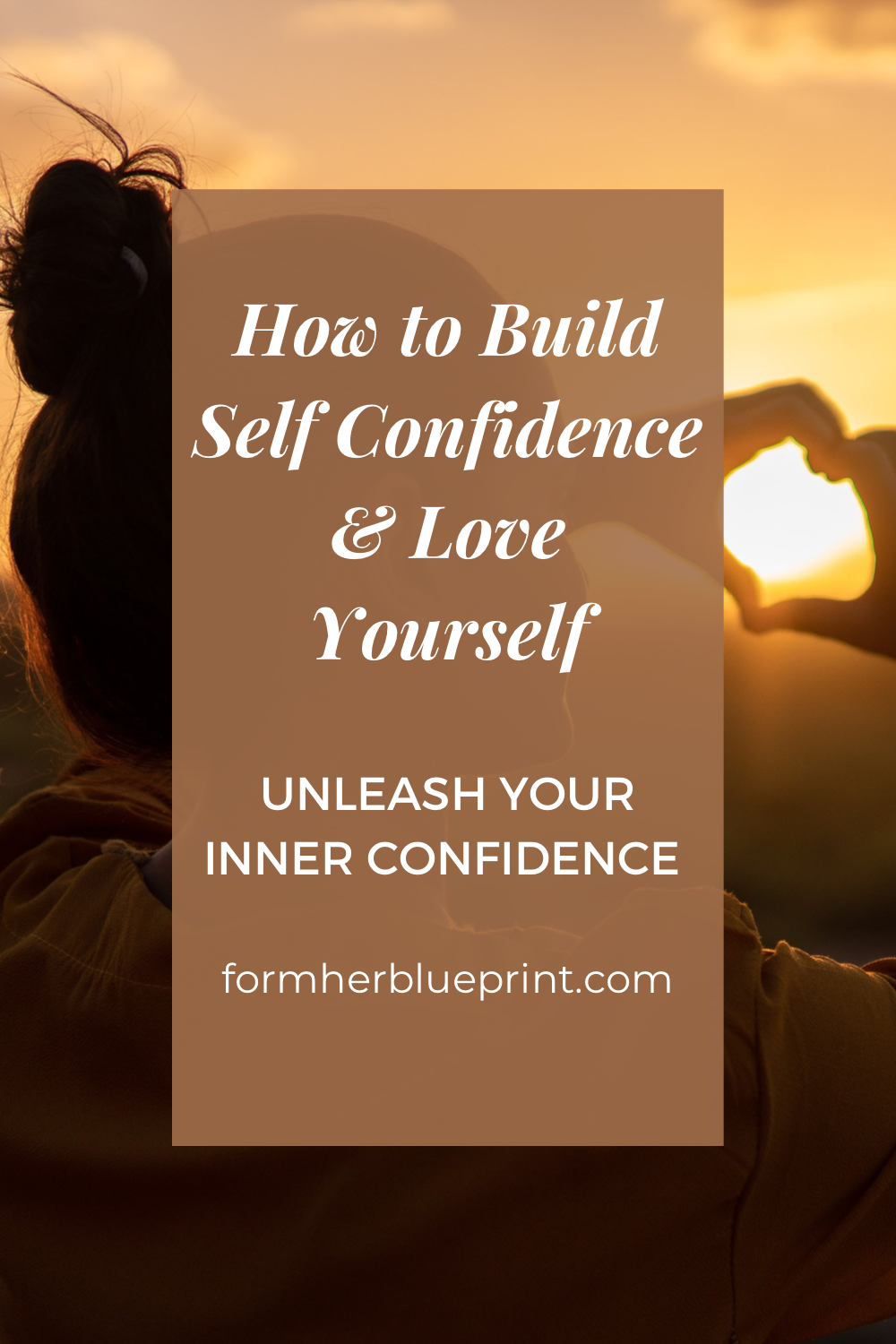A happy and fulfilling life requires both self-love and self-confidence. Many of us, though, experience both of these issues at some point in our lives. In our culture, we're constantly told that we're not smart enough, attractive enough, successful enough, and the list goes on. These unfavorable emotions and thoughts are easy to become enmeshed in, and they can negatively impact our mental health and general well-being. This article will discuss how to develop self-love and confidence, as well as why these two things are essential for leading a happy and fulfilling life.

What exactly is self-love?
Self-love is the act of accepting and respecting oneself, flaws and all. It's about treating oneself with the same compassion and love that you would provide to a close friend or family member. Self-love does not imply selfishness or narcissism; rather, it entails acknowledging your own worth and value as a human being.
What is the significance of self-love?
Self-love is necessary for a variety of reasons. For starters, it aids in the development of a positive self-image, which has a big impact on our mental health and overall well-being. We are less likely to feel worried, agitated, or sad when we love and accept ourselves. Second, self-love assists us in establishing healthy boundaries and making decisions that are in our best interests. We are more likely to say no to things that don't serve us and yes to things that do when we love ourselves. Finally, self-love aids in the development of positive connections with others. We are less likely to tolerate toxic conduct from others when we love ourselves, and we are more likely to attract wonderful and caring individuals into our lives when we love ourselves.

How to Accept Yourself
It's not always easy to love oneself, especially if you've spent a lot of time criticizing or neglecting yourself. It is, however, never too late to begin practicing self-love. Here are a few pointers to get you started:
Exercise self-compassion
The act of treating oneself with love, empathy, and understanding is known as self-compassion. It's about being kind to yourself and accepting that you're only human and will make mistakes. Try speaking to yourself as you would to a close friend to cultivate self-compassion. Instead of berating yourself for making a mistake, tell yourself, "It's okay; I'm only human, and everyone makes mistakes."
Concentrate on your strengths
We all have strengths and limitations, but we tend to focus on our weaknesses rather than our strengths.
Practice self-care
Self-care is the act of taking care of yourself, both physically and emotionally. It's about doing things that make you feel good and relaxed. Examples of self-care activities include taking a bubble bath, reading a book, going for a walk, or spending time with friends.
Allow yourself to be free of negative self-talk
Many of us engage in negative self-talk on a regular basis. We are our own harshest critics, saying things to ourselves that we would never say to anyone else. It is critical to let go of negative self-talk in order to love oneself. Replace any negative self-talk with a positive affirmation whenever you catch yourself doing so. For instance, if you hear yourself thinking, "I'm so stupid," try replacing it with, "I'm capable and intelligent."
Surround yourself with people who are upbeat
The individuals we associate with have a tremendous influence on our self-esteem and self-image. If you want to love yourself, surround yourself with people who lift you up and make you feel good about yourself.Limit your interactions with people who make you feel horrible about yourself.
You must forgive yourself
We all make errors, and it is critical that we forgive ourselves. Holding on to guilt or shame can suffocate us and prevent us from progressing. To love yourself, forgive yourself, and let go of whatever bad sentiments you have about yourself. Remember that making errors is a natural part of being human, and it is perfectly OK to learn from and grow from them.

What is Self-Confidence?
Self-confidence is the belief in oneself and one's abilities. It's about having faith in your own judgment, skills, and abilities. Self-confidence is not about being perfect or never making mistakes; it's about believing in yourself, even when things don't go as planned.
Why is self-assurance important?
For various reasons, self-assurance is crucial. For starters, it encourages us to take risks and attempt new things. We are more likely to move outside our comfort zone and take on new tasks when we believe in ourselves. Second, self-assurance assists us in setting and achieving goals. When we believe in ourselves, we are more likely to develop and achieve goals. Finally, self-assurance assists us in dealing with setbacks and disappointments. When we believe in ourselves, we become more resilient and capable of overcoming adversity.
How to Develop Self-Belief
It takes time and work to develop self-confidence, but it is doable with practice. Here are some pointers to help you boost your self-esteem:
Focus on your strengths
Just like with self-love, focusing on your strengths is essential for building self-confidence. Make a list of your strengths and read them to yourself regularly. Remind yourself of your successes and achievements, no matter how small they may seem.
Take action
Taking action is essential for building self-confidence. When we take action and achieve our goals, we feel a sense of accomplishment, which can boost our self-confidence. Start by setting small, achievable goals and work towards them one step at a time.
Challenge your negative thoughts
Negative thoughts can chip away at our self-confidence over time. To build self-confidence, it's essential to challenge these negative thoughts and replace them with positive affirmations. Whenever you catch yourself thinking something negative, try replacing it with a positive affirmation. For example, if you catch yourself thinking, "I can't do this," try replacing it with, "I can do this, and I will succeed."
Get out of your comfort zone
Stepping outside your comfort zone is essential for building self-confidence. When we take risks and try new things, we push ourselves to grow and develop new skills. Start by trying something small, like taking a new route to work or trying a new food. Gradually work your way up to bigger challenges.
Practice self-compassion
Self-compassion is essential for building self-confidence. When we treat ourselves with kindness and understanding, we're more likely to believe in ourselves and our abilities. Practice self-compassion by speaking to yourself as you would to a close friend. Offer yourself encouragement and support, even when things don't go as planned.

Surround yourself with people who are upbeat
The individuals we associate with can have a big impact on our self-esteem. To boost your self-esteem, strive to surround yourself with positive and supportive individuals who encourage and believe in you. Spend less time with people who make you feel horrible about yourself or who pull you down.
Acquire new abilities
Learning new skills can be a great way to boost your self-esteem. We feel a sense of success and satisfaction when we learn new talents. Look for ways to learn new things, such as by taking a class or taking up a new activity.
Celebrate your accomplishments
Celebrating your accomplishments, no matter how minor, is critical for developing self-confidence. Take the time to recognize and enjoy your accomplishments, whether it's a good exam grade or completing a work project.
Maintain your physical wellness
Taking care of your physical health can also aid in the development of self-confidence. We are more inclined to be confident in ourselves when we feel good about our physique and our health. Eat a healthy, balanced diet, get adequate sleep, and exercise on a regular basis.
Practice self-care
Self-care is essential for building self-confidence. When we take care of ourselves, we're more likely to feel good about ourselves and our abilities. Practice self-care by taking time for yourself each day, whether it's meditating, taking a bath, or doing something else that you enjoy.
Learning to love and trust oneself is a journey, but it is one well worth pursuing. You can learn to love and accept yourself for who you are by practicing self-love, challenging negative beliefs, surrounding yourself with good people, and taking care of yourself. It takes time and work to develop self-confidence, but with practice, you may learn to believe in yourself and your abilities. Remember that you are capable and deserving of love and respect, and that you deserve to have faith in yourself and your skills.

Marica Janaé is a certified life & mindset coach and the host of the well received Bougie Boss Podcast. She has dedicated her life to helping women achieve their life, relationship health and wellness goals.




Comments ()